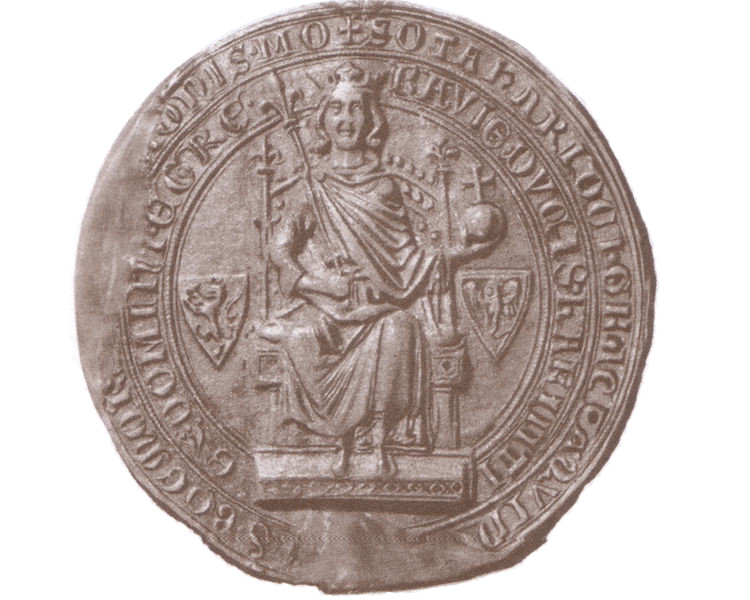Velice zajímavé a moc děkuji 
24.6. 1276 Proclamation of a curse on Přemysl Otakar II.
Categories: Personalities , Calendar

Přemysl Otakar II refused to recognise the election of Rudolf I of Habsburg as King of Rome. He declared an imperial curse over the Czech king. Anyone in the neighbouring countries could now capture Otakar and condemn him
During his reign, Přemysl Otakar II antagonized the powerful House of Vitkov when he founded the Golden Crown Monastery in their lands and gave it a territory of almost 1,000 square metres. The Vítkovs regarded this act as an encroachment on their own sovereignty and correctly recognized that, in addition to České Budějovice (the king ofBudejovice) was to become another base for the expansion of the sovereign's power.
In 1276 the Czech king finally managed to suppress the many years of resistance of the Vítkov family and had their then leader Boreš of Rýzmburk executed a year later. It is then that the person of Záviš of Falkenštejn comes to the fore, who with other Vítkovs before the kingwith other Vítek family members, fled to neighbouring Austria, where the local nobility, who were opponents of the Czech king, gave them asylum. Moreover, Austria was then in the possession of the aforementioned Roman king Rudolf I of Habsburg. It was quite simply...
Přemysl Otakar II did not want to recognize the election of Rudolf I of Habsburg as King of Rome, he himself unsuccessfully sought this important post and considered his election as a conspiracy against his own person. "The new ruler of the Holy Roman Empire, however, reacted by placing a new monarch over Přemysl Otakar II. by declaring an imperial curse, effectively outlawing him and anyone in the neighbouring countries could now capture and condemn the Czech king," writes Vladimír Liška in his book Grey Eminences of European History.
The threshing damaged Přemysl's domestic and international prestige, but also his still elite position among Central European rulers. In the end, the king had no choice but to submit to Habsburg as his vassal. "At the same time, however, he had to give up Austria, to which the Roman monarch had laid claim. Much worse, however, was that the Bohemian king then accepted his country from the hands of Rudolf I. Habsburg as an imperial fief, thus confirming his subordination," Liška writes.
The Czech king acted under the pressure of circumstances. This is evidenced by the fact that the acceptance of the Kingdom of Bohemia as a fief territory was contrary to the provisions of the Golden Bull of Sicily, which proclaimed an independent and sovereign position of the Přemyslid kings vis-à-vis the neighbouring German Empire, so that the Roman monarch had no right to treat Otakar as his liege.
The consequences of the curse were dire for the Bohemian monarch. When he died in August 1278, his body was not allowed to be buried in consecrated ground, and so it remained with the Minorites on the moor until 2 April 1279, when Rudolf of Habsburg allowed its transfer to Znojmo. "Here it was buried in the presence of the Queen Dowager Kunhuta. However, it was not until 1296 that Přemysl's son King Wenceslaus II had his father's body retrieved and ceremoniously buried in the then St. Vitus in Prague Castle," writes Jan Bauer in his book How a King Dies.
Vladimír Liška, The Grey Eminences of European History, Jan Bauer, How a King Dies, www.wikipedia.org
The article is included in categories:



